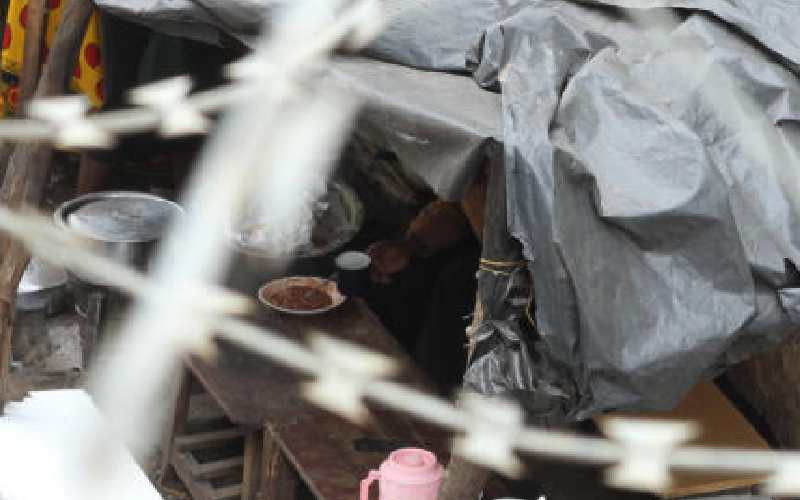
A woman sells her foodstuff in a makeshift hotel (kibanda) in Ngara area, Nairobi. [Elvis Ogina, Standard]
When Jane Moraa who works at the fish eateries along Lwang'ni beach in Kisumu developed a fever, she assumed it was malaria and bought over-the-counter anti-malarial drugs without medical tests.
Moraa was later found to be suffering from typhoid fever whose symptoms- fever, headache, weakness and fatigue, muscle ache, sweating, dry cough, loss of appetite, weight loss and stomach pain- are easy to confuse with those of malaria.
Facts First
Unlock bold, fearless reporting, exclusive stories, investigations, and in-depth analysis with The Standard INSiDER subscription.
Already have an account? Login
 The Standard Group Plc is a multi-media organization with investments in media
platforms spanning newspaper print
operations, television, radio broadcasting, digital and online services. The
Standard Group is recognized as a
leading multi-media house in Kenya with a key influence in matters of national
and international interest.
The Standard Group Plc is a multi-media organization with investments in media
platforms spanning newspaper print
operations, television, radio broadcasting, digital and online services. The
Standard Group is recognized as a
leading multi-media house in Kenya with a key influence in matters of national
and international interest.











